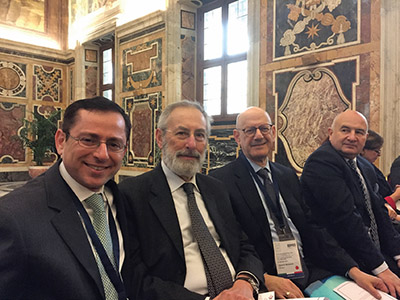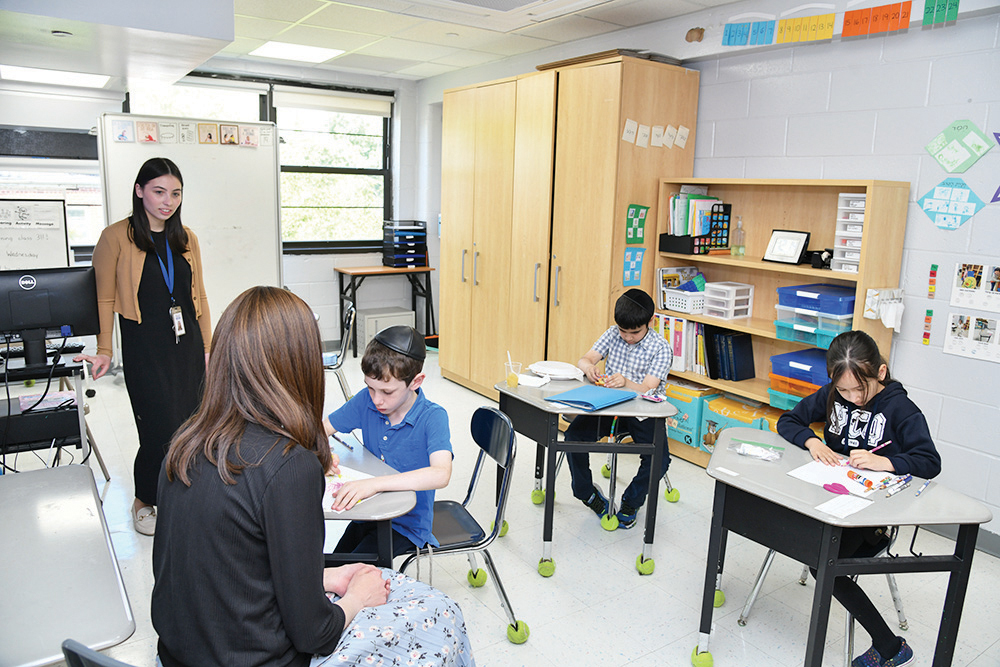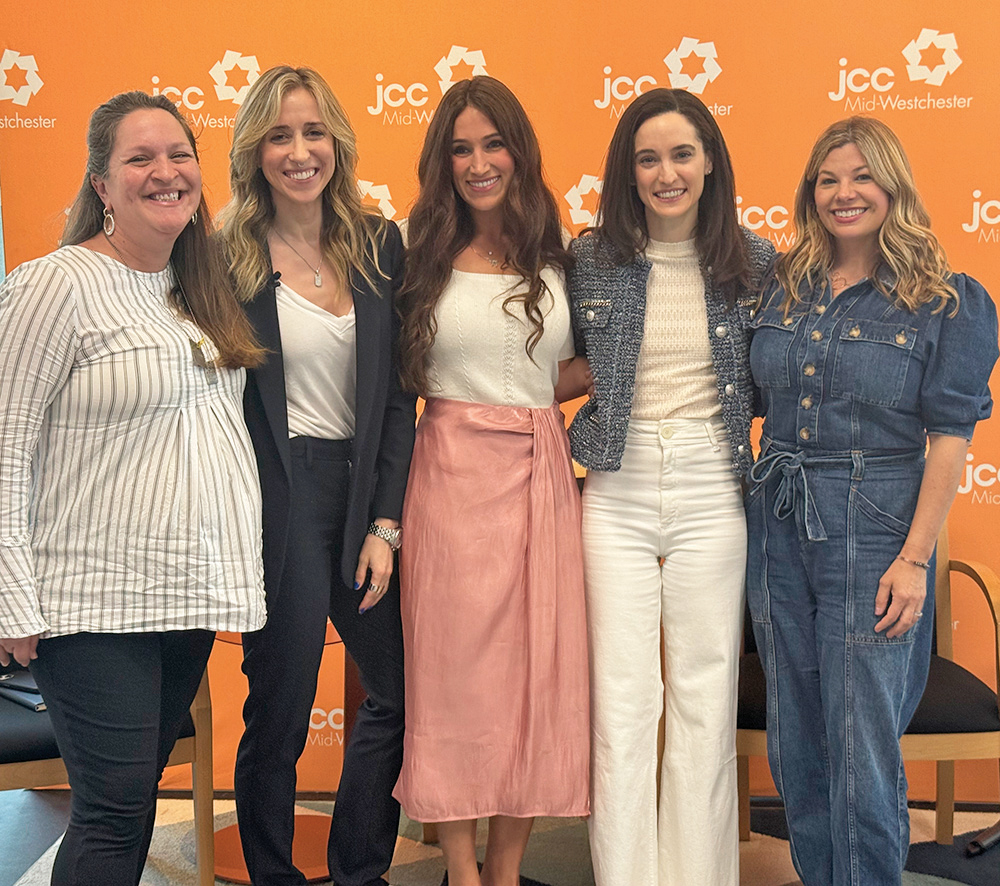


Serving as the president of the New York Board of Rabbis has been quite an experience. In this capacity, I have had the privilege to visit the West Wing; engage in dialogue with leadership of other faith communities; interact with our governor, mayor and police commissioner; meet with the state of Israel’s top decision makers; sit down with the secretary general at the United Nations; and interact with ambassadors from around the world.
But last week’s visit to the Vatican and meeting with the Pope was certainly a rare and unique opportunity.
Kudos to our Executive Vice President Rabbi Joseph Potasnik for his extraordinary work in cultivating critical partnerships that enable the NYBR to represent the Jewish community in an impactful and meaningful way.
To be honest, I dreaded returning to Rome. I remember being there a decade ago and I recall the unsettling feeling. After all, this is the place of our galut. Rome is the symbol of the crushing of Jerusalem and our people’s enslavement.
Nevertheless, I was there because the leadership of the NYBR was invited to participate in a major international conference focused on anti-Semitism. How ironic. The Romans ransacked Israel, the Catholics were responsible for endless persecutions of our people and here we were in Rome talking about anti-Semitism.
We were attending the International Conference on the Responsibility of States, Institutions and Individuals in the Fight Against anti-Semitism organized by the world’s largest regional security organization, the OSCE Organization for Security and Cooperation in Europe. There are 57 member countries in the OSCE and remarkably, foreign ministers from nearly every one of these countries were in attendance.
Last month the Italian government assumed the leadership of the OSCE and their government felt strongly that this year’s conference should address the alarming issue of the rise of anti-Semitism in Europe. Fittingly, this conference took place in conjunction with International Holocaust Remembrance Day.
The day began with a visit to the Vatican. I prepared extensively for my visit. I have always been cognizant of the halacha of not entering into a church and I was not going to change that now. There I sat in Consistory Hall of the Apostolic Palace next to Rabbi Riccardo Di Segni, the chief rabbi of Rome, and Daniel Mariaschin, the CEO of Bnai Brith. Of all places, it was in the Vatican where I met the chief rabbi!
Mr. Mariaschin commented to me how important it is—in this moment—to reflect on the words of Dayeinu as we visit with the Pope in the Vatican. He said: “Look how far we’ve come. Consider how much anxiety and persecution our people have endured due to edicts that emanated from these very walls. And here we are today, sitting in a meeting with the Pope. We can comfortably wear kippot on our heads. We are welcomed—as dignitaries—by a sitting Pope who discusses the Shoah and responsibility. For this reason alone, we should say Dayeinu. Yes, there is more to be done. But be mindful of how far we’ve come with this institution.”
In his remarks Pope Francis said “the enemy against which we fight is not only hatred in all of its forms, but even more fundamentally, indifference.” He spoke about “responsibility” and he said “we are responsible when we are able to respond.” He went on to quote text from the Nostra Aetate saying that “the Church, mindful of the patrimony she shares with the Jews and moved not by political reasons but by the Gospel’s spiritual love, decries hatred, persecutions, displays of anti-Semitism, directed against Jews at any time and by anyone.”
Upon conclusion of his words the Pope greeted each one of us personally.
The main conference took place at the Italian Foreign Ministry and included several hundred participants. The morning presentations focused primarily on the foreign ambassadors of each country sharing aloud three-minute statements condemning discrimination, intolerance and anti-Semitism. Countries such as Sweden, France, Switzerland, Hungary, Norway, Poland, Belarus, the Netherlands and countless others each declared that “there is no justification for anti-Semitism.” Even the ambassador from the Vatican said “anti-Semitism is completely contrary to Catholic principles.”
Upon conclusion of nearly two hours of these prepared statements, Holocaust survivor and former Chief Rabbi of Israel Rabbi Yisrael Meir Lau was handed the microphone. He gave a stinging response that stilled the entire room. Rabbi Lau said: “Two years ago the Holy See came to Yad Vashem and made a comment that I’ll never forget. Quoting God in the story of Cain and Abel he asked ‘Ayeka?’ Where are you? Pope Francisco said that this is the question that has to bother us always.”
Rabbi Lau went on to say: “Where were you during the War? Kristellnacht? Baba Yaar? Look at the newspapers in each of those countries on the day after atrocities took place. Barely a comment let alone a condemnation! Where were you? Why did you keep silent?
“Pope John Paul II told me that he knew my grandfather. During the War John Paul II was a priest and my father was a rabbi in the same town. John Paul II would see my father walking to shul every Shabbat. Each time, my father took 47 children with him to shul. How many of those children survived? Just five. Yet time and time again we are told that the church is committed to our ‘older brother’ the Jewish People. The United States sent back the Saint Louis. Ayeka? Where were you?
“When WWII broke out I was just 2 years old. At the end of the war I was 7½ years old. For those six years, the only language I knew was Polish. And all that time, there was one word which constantly rang in my ears. In the camps, in the ghetto, in the trains, in the snow, all I could think about was this one word. ‘Lachergo?’ ‘Why?’ Why is this happening to me? What did I do? What did my people do wrong? Did we threaten them? Did we have pistols?”
Rabbi Lau then said: “I listen to all your speeches, representing your respective countries. You’ve each delivered passionate speeches about the dangers of anti-Semitism. I lived through it!!! Tell me, what did we do wrong? What did I do wrong? A 7½ year old boy?
“Some told me ‘You are foreigners here. If you had a land of your own, you’d be fine and we’d leave you alone. Your contribution to mankind is amazing, but we oppose you because you are a people without a land.’
“Today we have a land. Exactly 70 years ago the United Nations decided to finally give us a land. Do you love us now? We are intelligent people. We have much to offer the world. I hear all your speeches and this makes no sense. Europe is burning. Look what’s going on in your countries. Jews fear for their safety. European Jewry has decreased by more than 20 percent in the last 10 years. Anti-Semitism is illogical. It’s irrational. It’s madness.
“You didn’t like the Jews in Poland because they had beards and black coats. Some told me, ‘If you’d be like us and look like us, we’d appreciate you.’ Yet, look at Germany. We didn’t have beards. We spoke a beautiful German. Many of us were actually completely assimilated. Did you embrace us there? I ask you. Please. Decide. What do you want from us? Lachergo? Why? What did we do to you? Ask the people in your countries. Share the question with the Pope. Ayeka? Where are you? We Jews love everyone. We appreciate everyone. Please just let us live. See the fruits that we can contribute to society.”
Rabbi Lau’s words were so intense and the moment was so powerful that it took several minutes for the complexion in everyone’s faces to be restored.
And while it was wonderful to hear countries like Austria, Hungary, France and Jordan articulate their opposition to any form of anti-Semitism in their countries, one couldn’t help but feel shaken by Rabbi Lau’s riveting words.
The next day featured a tour of the Jewish Museum of Rome and a visit inside the magnificent Great Synagogue of Rome. We also had an opportunity to meet with Rabbi Riccardo Di Segni, the chief rabbi of Rome in his office. There we learned about the Jewish community of Rome and discussed a range of issues such as the bans on circumcision and shechita that are currently in place in four countries in Europe.
In reflecting on this visit some will say, why bother? Of what use are these conferences? Personally, I feel that thank God at least the Europeans are having these conversations. The issue is being addressed.
Furthermore, when European anti-Semitism is being discussed, it is critical for the American Jewish community to be at the table. We need to stand with our brothers. And we need to be ready. Because, America could very well be next.
There is no question that anti-Semitism is completely irrational. And the Torah tells us this outright! Hen Am Levadad Yishkon. “You are a nation that dwells alone.” Nevertheless, Yaakov prepared for his meeting with his brother Esav in three ways: with gifts, prayers to God and readiness for battle. Thus, clearly gifts and words of friendship should not be ignored. In Yaakov’s case, gifts and prayer were enough for that particular moment.
Throughout Jewish history we have seen rabbinic leadership meeting with authorities to build healthy relationships on behalf of the Jewish community. Rabbi Yehuda HaNasi would visit in Rome. Abarbanel was close to the King of Spain. Maimonides was a physician to the Sultan in Egypt. Jewish leaders throughout history have been advocating for the Jewish people.
We look back at the painful history of hatred and we pray that through commitment and collaboration a new chapter of inclusion and understanding will be written.
By Rabbi Gideon Shloush
Rabbi Gideon Shloush is the president of the New York Board of Rabbis. He serves as the rabbi of Congregation Adereth El in Midtown Manhattan. He is an adjunct professor at Stern College for Women and trains rabbinical students at the Rabbi Isaac Elchanan Theological Seminary (RIETS).














